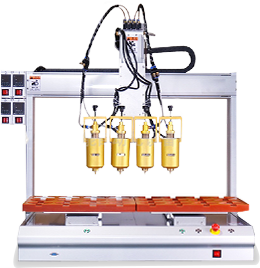

Aluminum alloy industrial profile stamping parts are based on high-performance aluminum alloy profiles such as 6061 and 6063, and are processed through precision stamping technology. With the help of advanced molds and pressure equipment, aluminum alloy profiles are punched, bent, formed and other operations are performed to create a variety of structures suitable for industrial scenarios. Widely used in electronic equipment brackets, automation equipment frames, new energy component housings and other fields, it combines the lightweight, corrosion-resistant and easy-to-process characteristics of aluminum alloys with the precise and efficient advantages of stamping technology to provide industrial products with core components that have both structural strength and lightweight requirements, helping equipment to achieve a balance in portability, stability and durability, and adapt to the complex and changing application scenarios of modern industry.
II. Product Features
(I) Core Advantages
1. Lightweight and high strength: The density of aluminum alloy profiles is only 1/3 of that of steel. After stamping and cold working hardening, the tensile strength can reach 200-300MPa. While reducing the overall weight of the equipment (weight reduction of 30%-50%), it ensures the structural bearing capacity and is suitable for electronic equipment, new energy vehicles and other scenes with strict requirements for lightweight.
2. Precision adaptability: The mold processing accuracy is controlled at ±0.05mm, the dimensional tolerance of the stamping parts is extremely small, the hole position and bending angle are accurate, and it can be seamlessly matched with other parts to meet the high-precision assembly requirements of automation equipment, such as robot joint connectors, to ensure the operation accuracy of the equipment.
3. Weather resistance and corrosion resistance: The surface of the aluminum alloy naturally forms an oxide film. After stamping, it is combined with anodizing, spraying and other processes. The salt spray test is more than 1000 hours. It can be stably used in harsh industrial environments such as humidity, acid and alkali, and extend the service life of the equipment.
(II) Feature comparison table
Compare dimensions | Aluminum alloy stamping parts | Steel stamping parts | Application value |
weight | Low density, weight reduction 30% - 50% | Heavy weight | Adapt to lightweight equipment |
strength | Tensile strength 200 - 300MPa | Tensile strength 300 - 500MPa | Meet general industrial load-bearing requirements |
weather resistance | Salt spray test ≥1000h | Salt spray test ≤500h | Long-term service in harsh environments |
processability | Easy to bend and form | High processing difficulty | Adapt to complex structural requirements |
III. Product Details
(I) Process Flow
1. Profile pretreatment: Select industrial aluminum alloy profiles such as 6061 and 6063, cut them into suitable lengths, and then remove burrs and oil to ensure the flatness and cleanliness of the stamping surface.
2. Mold design: According to the product structure requirements, use CAD/CAM technology to design special molds, including punching molds and bending molds, which are processed by CNC and heat treated (mold hardness HRC55-60) to ensure accuracy and service life.
3. Stamping: On a 100-500T precision punching machine, complete the punching, bending, stretching and other processes, and use a servo control system to accurately control the pressure and stroke to achieve one-time molding of complex shapes, such as arc bending of electronic equipment housings and mounting hole array stamping.
4. Surface treatment: Optional processes such as anodizing (forming a colored oxide film to enhance corrosion resistance and beauty), spraying (customized color to enhance protection), and electrophoresis (high corrosion resistance, suitable for harsh environments) can meet the appearance and performance requirements of different industries.
(II) Applicable scenarios
Electronic equipment: Processing mobile phone middle frames and laptop shell components, using the lightweight and easy-to-process characteristics of aluminum alloy, combined with stamping precision structure, to ensure the thinness and structural strength of the equipment, such as the frame components of high-end models of consumer electronics brands.
Automated equipment: Manufacturing robot arm connectors and equipment frame rails, relying on high-precision stamping holes and high-strength structures, to achieve modular assembly and precise operation of equipment, and adapt to industrial robots and intelligent storage equipment.
New energy field: As photovoltaic bracket accessories and new energy vehicle battery pack shell components, the weather resistance and lightweight of aluminum alloy, combined with the stamping sealing and mounting structure, meet the new energy industry's demand for high efficiency and durability.
(III) Quality Control
Build a "three-level quality inspection" system: the first piece is inspected in full size by a three-coordinate measuring instrument, every 200 pieces are inspected in the process to monitor the size deviation and surface quality, and 100% of the finished products are tested for tensile strength and weather resistance. Passed IATF16949 automotive industry quality management system certification, key performance indicators meet GB/T 3880.2 aluminum alloy processing standards, providing reliable and lightweight aluminum alloy stamping solutions for industrial products, helping enterprises improve product competitiveness.
 Headquarters tel.
Headquarters tel. E-mail.
E-mail.